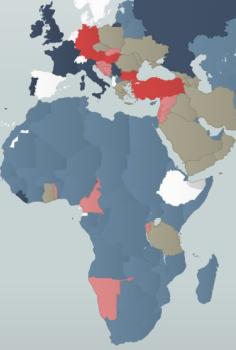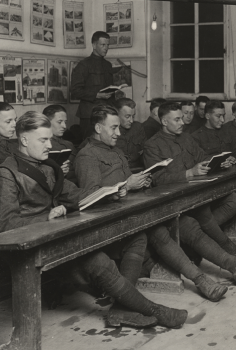Britain's blockade across the North Sea and the English Channel cut the flow of war supplies, food, and fuel to Germany during World War I. Germany retaliated by using its submarines to destroy neutral ships that were supplying the Allies. The formidable U-boats (unterseeboots) prowled the Atlantic armed with torpedoes. They were Germany’s only weapon of advantage as Britain effectively blocked German ports to supplies. The goal was to starve Britain before the British blockade defeated Germany.
On May 7, 1915, German submarine U-20 torpedoed the Lusitania, a Cunard passenger liner, off the coast of Ireland. Nearly 1,200 men, women, and children, including 128 Americans, lost their lives. The Allies and Americans considered the sinking an act of indiscriminate warfare. The Germans asserted the Lusitania was carrying war materiel and was therefore a legitimate target.
Faced with the possibility that the U.S. might go to war over the incident, Germany backed down and ordered its U-boat fleet to spare passenger vessels. The order, however, was temporary.
Germany built new and larger U-boats to punch holes in the British blockade, which was threatening to starve Germany out of the war. In 1914, Germany had just 20 U-boats. By 1917, it had 140 and the U-boats had destroyed about 30 percent of the world's merchant ships.
At the dawn of 1917, the German high command forced a return to the policy of unrestricted submarine warfare, engineering the dismissal of opponents of the policy that aimed to sink more than 600,000 tons of shipping a month. Germany was already experiencing food shortages and had imposed unpopular compulsory service either in armed forces or war industries. They hoped to break the British stranglehold blockade of crucial German supply ports and knock Britain out of the war within the year.
U-boats resumed unrestricted attacks against all ships in the Atlantic, including civilian passenger carriers. Although concerned the U.S. might react with intervention, German military leaders calculated they could defeat the allies before the U.S. could mobilize and arm troops to land in Europe.
Although President Wilson formally broke diplomatic relations in February 1917 when the unrestricted submarine warfare resumed, he was still unsure how far public support had moved. He declined to ask Congress for a declaration of war at that time, arguing that Germany had still not committed any “actual overt acts” warranting a military response.







